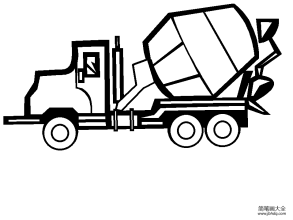Equipment Recommendations for Concrete Mixing
- sophieaimix
- Nov 8, 2023
- 2 min read
Concrete mixing is a critical process in construction projects, and having the right equipment is essential to ensure efficient and high-quality concrete production. With numerous options available in the market, selecting the appropriate equipment can be challenging. In this article, we will provide recommendations for equipment that is well-suited for concrete mixing, including portable concrete mixers, stationary batch plants, and volumetric mixers. These recommendations aim to assist contractors and construction professionals in making informed decisions and optimizing their concrete mixing operations.
Portable Concrete Mixers
Portable concrete mixers are versatile and convenient solutions for smaller construction projects or those with limited space. These small self loader concrete mixers are easy to transport and can be used at various job sites. They typically have a drum capacity ranging from 1 to 5 cubic yards, allowing for efficient mixing of concrete on demand. Portable mixers are available in electric or gasoline-powered models, providing flexibility based on the availability of power sources. They are ideal for applications such as sidewalks, driveways, small foundations, and repair works. Portable concrete mixers offer ease of operation, quick setup, and simple maintenance, making them suitable for contractors who require mobility and flexibility in their concrete mixing operations.

Stationary Batch Plants
For larger construction projects with higher concrete demands, stationary batch plants are recommended. These fixed installations are capable of producing large volumes of concrete efficiently. Stationary batch plants consist of multiple silos for storing cement, aggregates, and other materials. They usually incorporate a computerized control system, allowing for precise measurement and mixing of ingredients. Small batch plants offer a high degree of automation, ensuring consistent quality and reducing labor requirements. They are suitable for projects such as bridges, commercial buildings, highways, and large-scale infrastructure development. While stationary batch plants require a designated site and may have higher initial costs, they provide a reliable and continuous supply of concrete, making them cost-effective for long-term projects.

Volumetric Mixers
Volumetric mixers, also known as mobile batch plants or on-site mixers, offer versatility and flexibility in concrete production. These machines combine the capabilities of a batching plant and a concrete mixer into a single unit. Volumetric mixers are equipped with separate compartments to store cement, aggregates, water, and additives. They enable operators to produce customized mixes on-site by adjusting the proportions of ingredients as needed. Volumetric mixers offer advantages such as reduced waste, improved efficiency, and the ability to adjust mix designs based on project requirements. They are suitable for applications that require frequent changes in mix specifications, remote locations, or projects with unpredictable concrete demands. Volumetric mixers provide contractors with greater control over their concrete supply and eliminate the risk of over- or under-production.
Conclusion
Selecting the right equipment for concrete mixing is crucial for construction projects. Portable concrete mixers, stationary batch plants, and volumetric mixers offer suitable options based on project size, mobility requirements, and customization needs.






Comments